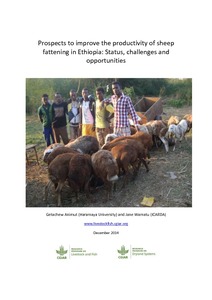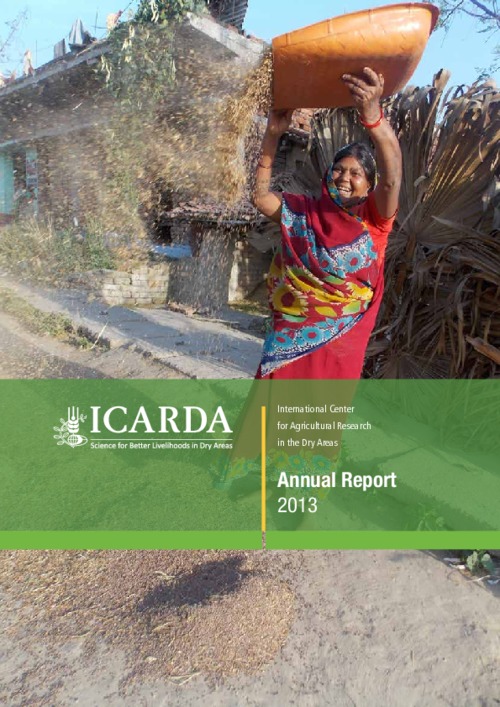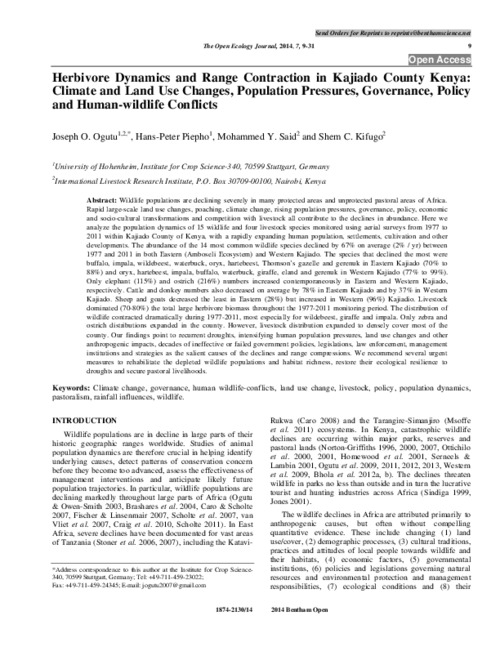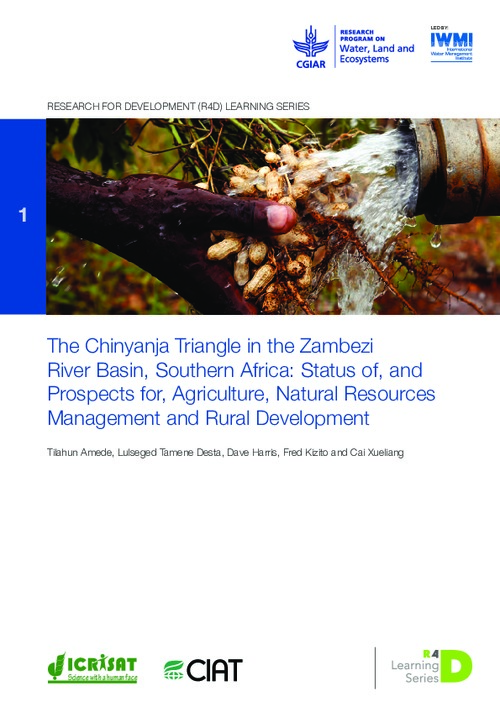Location
The International Center for Agricultural Research in the Dry Areas (ICARDA) was established in 1977. It is one of 15 such centers supported by the CGIAR. ICARDA’s founding mandate to promote agricultural development in the dry areas of developing countries remains highly relevant today.
ICARDA works with a tight focus on the problem-solving needs of resource-poor farmers, achieving this through the in-field delivery of its research outputs. Although global food production has increased by 20 per cent in the past decade, food insecurity and poverty remain widespread, while the natural resource base continues to decline.
International research centers such as ICARDA, which have helped drive previous improvements, continue to deliver new technologies to support sustainable growth in agriculture, and crucially, to work with a wide range of partners to accelerate the dissemination of these technologies.
ICARDA’s biggest strength is its staff – 600 highly skilled men and women from 32 countries. Our research and training activities cover crop improvement, water and land management, integrated crop-livestock-rangeland management, and climate change adaptation.
Other interventions include:
- Water harvesting - supplemental irrigation and water-saving irrigation techniques
- Conservation agriculture methods to reduce production costs and improve sustainability
- Diversification of production systems to high-value crops – horticulture, herbal and medicinal plants
- Integrated crop/rangeland/livestock production systems including non-traditional sources of livestock feed
- Empowerment of rural women – support and training for value-added products.
The ICARDA genebank holds over 135,000 accessions from over 110 countries: traditional varieties, improved germplasm, and a unique set of wild crop relatives. These include wheat, barley, oats and other cereals; food legumes such as faba bean, chickpea, lentil and field pea; forage crops, rangeland plants, and wild relatives of each of these species.
ICARDA’s research portfolio is part of a long-term strategic plan covering 2007 to 2016, focused on improving productivity, incomes and livelihoods among resource-poor households.
The strategy combines continuity with change – addressing current problems while expanding the focus to emerging challenges such as climate change and desertification.
We work closely with national agricultural research systems and government ministries. Over the years the Center has built a network of strong partnerships with national, regional and international institutions, universities, non-governmental organizations and ministries in the developing world and in industrialized countries with advanced research institutes.
THE ‘DRY AREAS’
Research and training activities cover the non-tropical dry areas globally, using West Asia, North Africa, Central Asia and the Caucasus as research platforms to develop, test, and scale-out new innovations and policy options.
Dry areas cover 41 per cent of the world’s land area and are home to one-third of the global population. About 16 per cent of this population lives in chronic poverty, particularly in marginal rainfed areas. The dry areas are challenged by rapid population growth, frequent droughts, high climatic variability, land degradation and desertification, and widespread poverty. The complex of relationships between these challenges has created a "Poverty Trap."
Members:
Resources
Displaying 291 - 295 of 431Prospects to improve the productivity of sheep fattening in Ethiopia: Status, challenges and opportunities
ICARDA Annual Report 2013
2013 has been a fruitful year for ICARDA marked by research accomplishments and a sense of gratitude. Our longstanding partner countries provided important support in making decentralization of the Center’s research a reality. This transition positions our research programs to more expressly target agroecosystem-based solutions, needed for wider impacts.
Природные ресурсы проектной территории
Environmental resources project area
Herbivore Dynamics and Range Contraction in Kajiado County Kenya: Climate and Land Use Changes, Population Pressures, Governance, Policy and Human-wildlife Conflicts
Wildlife populations are declining severely in many protected areas and unprotected pastoral areas of Africa.
Rapid large-scale land use changes, poaching, climate change, rising population pressures, governance, policy, economic
and socio-cultural transformations and competition with livestock all contribute to the declines in abundance. Here we
analyze the population dynamics of 15 wildlife and four livestock species monitored using aerial surveys from 1977 to
The Chinyanja Triangle in the Zambezi River Basin, Southern Africa: Status of, and Prospects for, Agriculture, Natural Resources Management and Rural Development
The Chinyanja Triangle (CT) is an area inside the Zambezi
River Basin, inhabited by Chinyanja-speaking people
sharing a similar history, language and culture across
the dryland systems of the eastern province of Zambia,
southern and central regions of Malawi and Tete Province
of Mozambique. Chiefs and Chiefdoms play a critical role
in decision making and influencing social relationships. The
Zambezi River, which originates in the Kalene Hills in Zambia
is joined by ten big tributaries from six countries, and is







